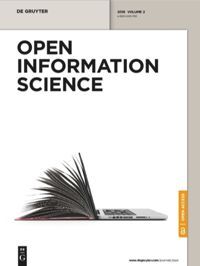Recent searches
Search options
I see there's a nice shout-out for the #PleiadesGazetteer community in Farina, Andrea, Paola Marongiu, Mathilde Bru, and Daniele Borkowski. “When Data Meets the Past: Data Collection, Sharing, and Reuse in Ancient World Studies.” Open Information Science 9, no. 1 (January 1, 2025). https://doi.org/10.1515/opis-2025-0014.
"Academic working groups such as that of Pleiades for ancient geographical data (NYU’s Institute for the Study of the AW ...) are vital for advancing shared standards in data set creation and interoperability. Participating in collaborative efforts – such as contributing to repositories or establishing discipline-specific metadata standards – can empower scholars to make their data sets more widely usable and integrated with larger research projects. As these collaborations grow, they create a feedback loop, where best practices evolve and become embedded within the discipline, ultimately broadening the impact of data-driven approaches in AW studies."


